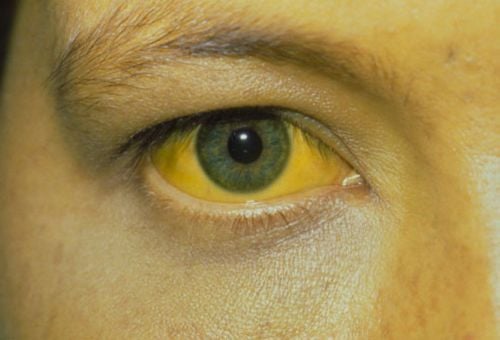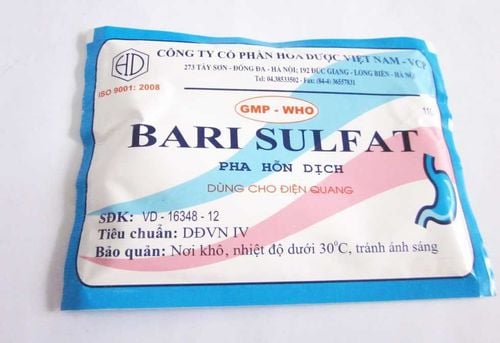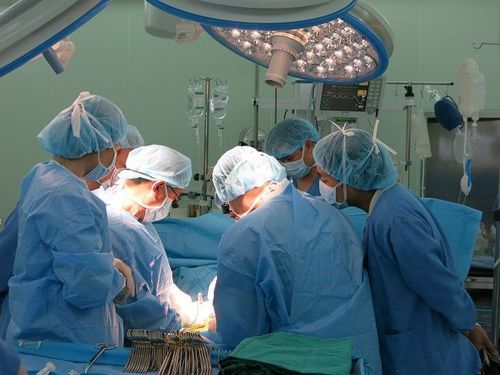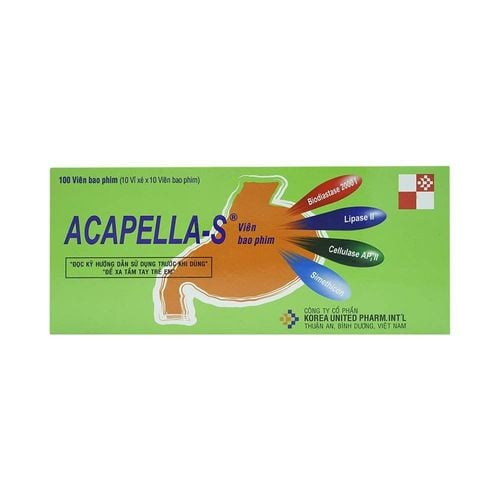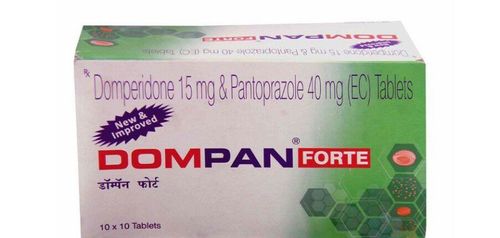This is an automatically translated article.
The article was professionally consulted by resident Doctor Duong Van Sy - Department of Pediatrics - Neonatology - Vinmec Hai Phong International General Hospital.
Many mothers are born prematurely, causing premature babies to have weak health, difficult to care for or many dangerous diseases. In particular, necrotizing enterocolitis is the most common disease in premature infants. Mothers should pay attention to the signs to detect the child's condition at the earliest and get the best treatment.
1. What is necrotizing enterocolitis?
Necrotizing enterocolitis is an acute intestinal disease, common in children with digestive diseases, which can destroy the tissues of the intestinal mucosa in children.
The disease is common in premature babies (accounting for about 70-80% of babies with low gestational age). Premature infants with necrotizing enterocolitis can lead to complications such as intestinal perforation, peritonitis or intestinal obstruction leading to death.
2. Why is necrotizing enterocolitis more likely to occur in premature infants?
Premature babies often have weak bodies, organs in the body may not be perfect, so babies are prone to respiratory failure after birth. When giving formula milk to children improperly or the amount of milk increases too quickly, bacteria can enter the intestinal tract. This is one of the direct or indirect causes of necrotizing enterocolitis, lesions most often localized to the small intestine.
The damage caused can be from a few centimeters to the entire length of the small intestine. Microscopic lesions in the form of edema, hemorrhage, necrosis, may infiltrate polymorphonuclear leukocytes. From there, it leads to complications such as peritonitis, intestinal perforation, intestinal obstruction.
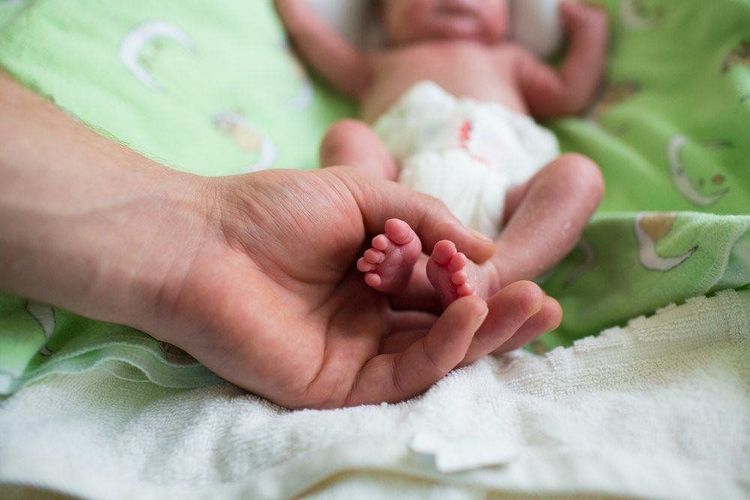
3. Signs of necrotizing enterocolitis in premature infants
3.1 The most prominent general signs Bloody diarrhea, poor feeding, spitting up milk. Birth asphyxia, lethargy, apnea. Hypothermia . Anemia, polycythemia vera. Systemic symptoms are similar to sepsis. Abdominal distention, palpable mass in the abdomen, red and swollen abdominal wall. Milk intolerance, vomiting milk or green fluid. 3.2 Specific signs in each stage Early stage Children lethargy, lethargy, body temperature is often unstable. The gastric juice is slow to digest, and the fluid remains about 20%. There are brief pauses in breathing, a slow heart rate, low blood sugar. The next stage Yellow vomiting. Poor skin perfusion. Diarrhea, sometimes whole or microscopic bloody diarrhea. Abdomen distended, rectal examination sometimes bloody. Late stage There is shock. Dark brown gastric juice. The abdomen is distended, swollen, the abdominal wall has red spots. There is peritoneal induction or peritonitis.

4. Steps to treat necrotizing enterocolitis in neonates
There are two treatment options for necrotizing enterocolitis in neonates currently being applied: medical treatment and surgical treatment.
4.1 With medical treatment Medical treatment is applied to necrotizing enterocolitis (stage I), when the child has the first signs.
This method is performed as follows: Oral fasting, then a nasogastric tube is placed to drain gastric juice. Only feed the child by mouth when the clinical situation is good, such as: no bleeding, no abdominal distension, or at least 5 days after the abdominal X-ray returns to normal.
If the child is having an umbilical vein catheter, the umbilical vein catheter should be removed. Then perform electrolyte replacement, anti-shock and DIC treatment. Once hemodynamically stable, switch to total parenteral nutrition for 1-2 weeks.
4.2 Surgical treatment For severe cases of children, surgical intervention is indicated when in the following specific cases:
Intestinal perforation: there is free air in the abdomen / X - abdominal radiograph. Peritonitis: the abdominal wall is red and swollen, when the abdominal fluid is punctured, there is blood or pus, and there are Gram (-) bacteria on fresh examination. The dilated bowel loop remains motionless on multiple films. Clinical: intestinal obstruction, palpable intra-abdominal mass. Or surgery can be considered after medical treatment after 48-72 hours, but the patient's condition does not improve, there are bad manifestations such as metabolic acidosis, continued thrombocytopenia, and coagulation disorders. Necrotizing enterocolitis stage 1, can be fed earlier after 72 hours. Necrotizing enterocolitis stage 2, 3 should fast for at least 10-14 days. Start breastfeeding 10ml/kg, gradually increase 10ml/kg per day, at the same time must closely monitor excess gastric juice, abdominal condition and occult blood in stool.
5. Backup
Prevention is better than cure, prevention for mothers and children will greatly reduce morbidity and mortality caused by necrotizing enterocolitis.
5.1 With pregnant mothers It is necessary to have regular antenatal check-ups. High-risk maternal subjects should be detected. There is a specific strategy of treatment and thoughtful care for the good health of the fetus. In particular, prepare for preventive work to avoid preterm birth. 5.2 For mothers with premature babies. Babies born with low birth weight or premature babies must be breastfed right from the first hours after birth. Mothers need to eat enough nutrition to get an abundant breast milk supply, and must rest and get enough sleep. Above are the signs and methods of treating necrotizing enterocolitis that mothers need to know. Hopefully, mothers can detect early signs of illness in their children to have the best treatment, avoiding unnecessary consequences.
Pediatrics department at Vinmec International General Hospital is the address for receiving and examining diseases that infants and young children are susceptible to: viral fever, bacterial fever, otitis media, pneumonia in children, .... With modern equipment, sterile space, minimizing the impact as well as the risk of disease spread. Along with that is the dedication from the doctors with professional experience with pediatric patients, making the examination no longer a concern of the parents.
Please dial HOTLINE for more information or register for an appointment HERE. Download MyVinmec app to make appointments faster and to manage your bookings easily.





